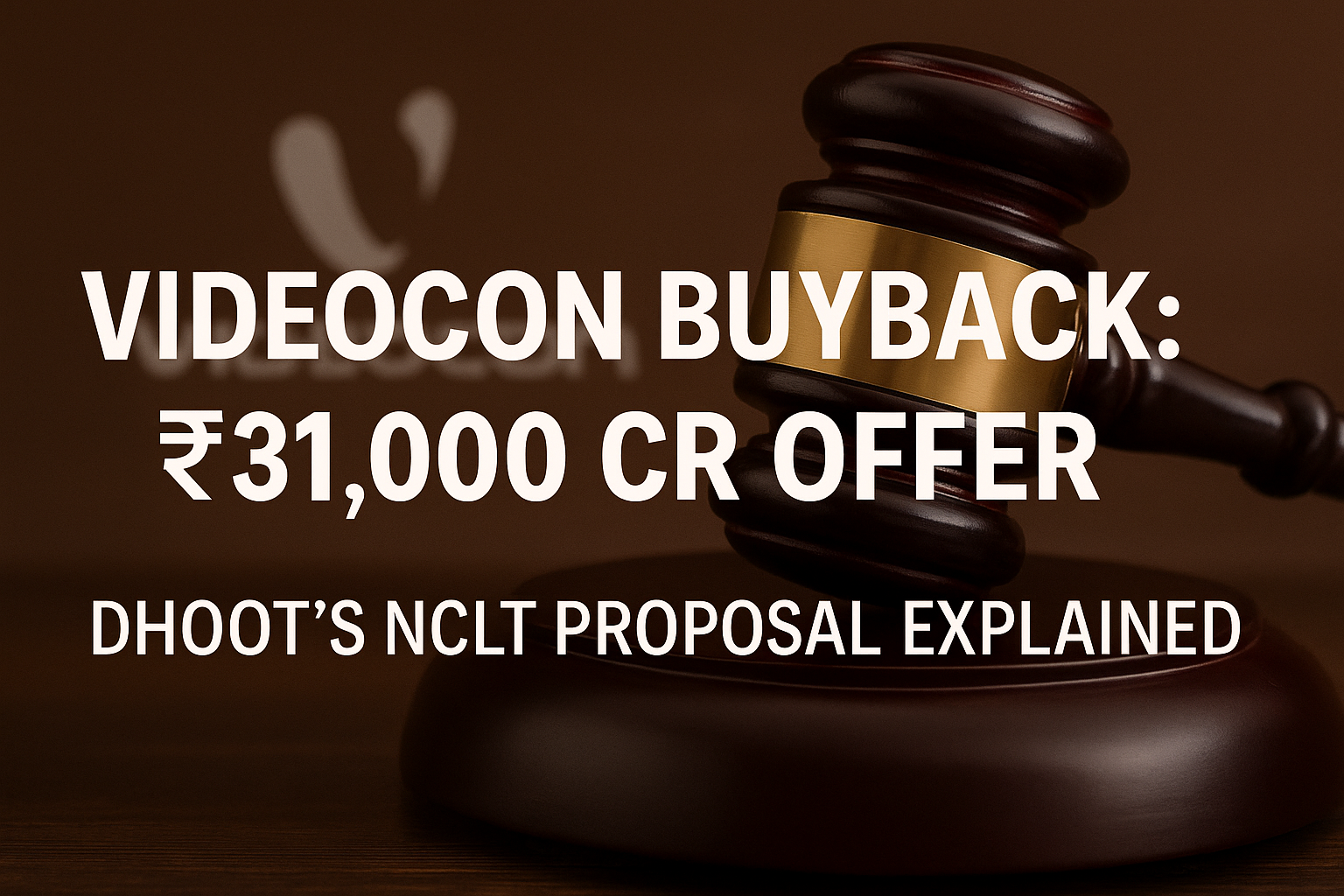Announcement: Lorem ipsum dolor sit amet, consectetur adipiscing elit. Donec et quam blandit odio sodales pharetra.
Why the government must allow Dhoot to buy back Videocon
Just a few days after Wadhawan made an offer to buy back Dewan Housing from the NCLT at a discount; Venugopal Dhoot made a similar proposal. He agreed to pay around Rs.31,000 crore as a full and final settlement for 13 out of the 15 Videocon group companies that had been referred to NCLT. How good is this offer and is it a good idea to accept such proposals?

Table of Content
Looking at it technically
On approach to this issue is to look at it very technically. Clearly, if Venugopal Dhoot had the money, he should have paid the banks or, at least, negotiated for a settlement with the banks. That was 3 years back and a lot has changed since then. In a previous such case of the Essar group, the NCLT explicitly prohibited any promoter group or even related entity to bid for the assets. The argument was that it would set a bad precedent and encourage more of the promoters to strike sweetheart deals. That is an absolutely valid argument. To an extent that amounts to the promoter almost buying back the company and retaining the brands at a huge discount. For banks it may look more honorable than a default but it amounts to the same thing. That is the reason, similar proposals have not been well received in the past. But, there is also a practical angle to this story. At lot has changed in the last 3 years and COVID has even put NCLT cases in a state of abeyance.
Good versus bad bankruptcy
It is perhaps time to look at the next nuance in anti-bankruptcy proceedings. Global experiences have proved that for such an exercise to be successful, it is not possible to just go by the book. It is time to draw a line between a regular bankruptcy due to market conditions and a bad bankruptcy as a result of money laundering. In the former case, the NCLT must give a chance to the promoter to recoup control of the company, even if it is a steep discount. Of course, the NCLT will need a different approach if the bankruptcy is a result of laundering of money as is alleged in cases like IL&FS, DHFL and Kingfisher. In the post-COVID scenario, India needs to give another chance to its entrepreneurs to make a fresh start.
Make a start; but with checks
What is wrong in returning many of these companies to their promoters? It is a much better choice than letting the money languish for years. But, such a move must be with its checks and also the balances. Firstly, the promoter will continue to be accountable for frauds that get located. Secondly, banks have taken a haircut so they must have equity and management participation in these companies. Lastly, the MCA and the government must subject such companies to increased scrutiny for the next few years. COVID is the time to make a fresh start with the NCLT!
Comments